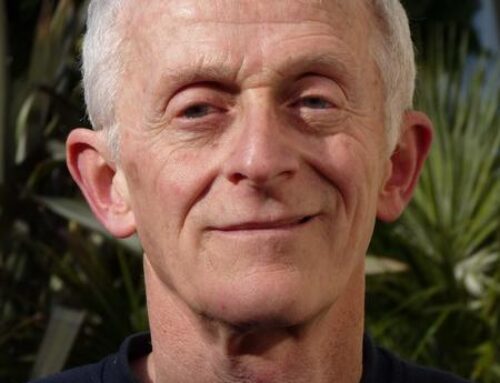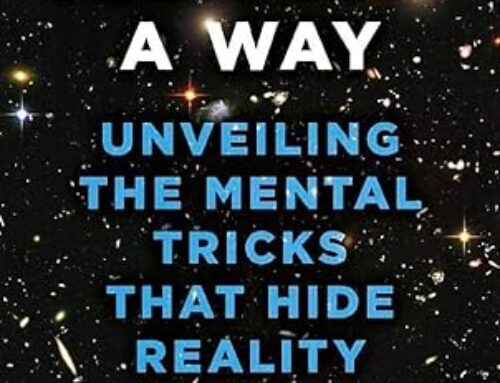In this episode we’re going to be examining the assumptions of Western Science.
All science is based on assumptions. In order to isolate systems in experiments and standardise measurements of the target data, other variables need to be pinned down so scientists can form precise mathematical models, that can then be repeated accurately in the peer review process. Today we’re going to look at these assumptions, and establish if they indeed have become standard, fixed and unquestioned as some critics claim.
One of those critics is Cambridge educated biologist Rupert Sheldrake, who gave a TED talk in 2013 about the assumptions of western science, which was banned by TED’s anonymous board of scientific advisors for not being a ‘fair description of scientific assumptions’. Far from quieting the controversy, the ban caused outcries of censorship, and the ripped video was seen many millions of times on You Tube, probably many times more than had it been left to stand as one scientists opinion. Today I want to examine just how fair his description was.
Sheldrake starts by identifying a conflict between science as a method of enquiry, based on reason, evidence, hypothesis and collective investigation, and science as a belief system or world view. He argues that the belief system part, when it reaches evidence that contradicts its beliefs, rejects that evidence rather than updating the beliefs. Sheldrake argues that this goes against the very objective of free enquiry and scientific endeavour which is the search for truth, and tends towards an imposed Dogma, something we tend to associate more with religious worldview.
The main subject of today’s conversation is going to be Sheldrake’s book about all this, ‘Science set Free’ , provocatively called the Science Delusion by his Uk publisher, which has, despite doubling sales, sadly put off many professional scientists who would otherwise have supported many of his points. In it he lists 10 examples of assumptions of western science which most of us with scientific secular educations wouldn’t even doubt, and turns them into questions for us to scrutinise scientifically.
To help us examine his claims is one of Rupert’s old friends and supporters, a specialist in the history and philosophy of science, an author and the program director of the Scientific and Medical Network, David Lorimer. He is also President of Wrekin Trust and Chief Consultant of Character Education Scotland. He is also a former President of the Swedenborg Society, and Vice-President of the International Association for Near-Death Studies. Originally a merchant banker then a teacher of philosophy and modern languages at Winchester College, he is the author and editor of over a dozen books, most recently ‘The Protein Crunch’ (with Jason Drew) and ‘A New Renaissance’, and out this year his new book ‘a quest for wisdom’. He is the originator of the Inspire-Aspire Values Poster Programmes, which this year involved over 25,000 young people.
What we discuss in this episode:
00:00 Compulsory philosophy and death
07:32 Examining Rupert Sheldrake’s 10 claimed assumptions of western science
09:10 The ‘Life and nature are mechanistic’ assumption
19:30 The ‘Matter is unconscious’ assumption
29:40 ‘The laws of nature are constant’ assumption
38:26 The Galileo Commission – get everyone to look though the telescope
43:00 Reality is relational not relative – Apilla Colorado and Leroy Little bear
44:45 The ‘Nature is Purposeless’ assumption – teleology
52:30 ‘Biological heredity is only physical’ and ‘memory is in your Brain’ assumptions
55:00 Morphogenetic fields and memories of previous lives and birthmarks
1:01:45 ‘Your mind is in your head, your consciousness is correlated to your brain activity’ assumption
1:02:55 The brain as a possible filter or transducer of consciousness – William James and F.C.S.Schiller, Henri Bergson, Frederic W.H. Myers
1:05:30 ‘Psychic phenomena and telepathy are impossible’ assumption
1:09:00 You can’t have impossible experiences VS non-reproducibility in the lab
1:14:20 Resistance to evidence base due to a priori assumptions here mentioned
1:22:00 ‘Thinking Beyond the Brain’ David Lorimer
1:28:00 Irreducibility wave level primacy to particle level or vice versa
1:33:50 The Scientific and Medical Network – widening and deepening the scope of science beyond reductionalism
1:37:30 A ‘flip’ from outside in to inside out perspective, Jeff Kripal
1:41:00 Scientific discovery appropriation by the New Age
1:45:30 3rd person science has to assume 1st person perspective to gather data
1:50:00 Gnosis – knowledge by identification, inseparability between knower and known
1:51:00 Criticism of SMN for trying to include spirituality in a scientific context
1:56:00 The weaponisation of the term ‘Pseudoscience’, Susan Gerbistch’s curating of Wikipedia’s entries of psi research and alternative medicine
1:59:00 ‘A Quest for Wisdom’ David Lorimer


